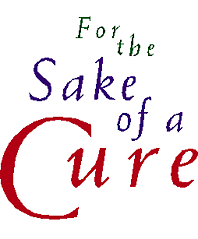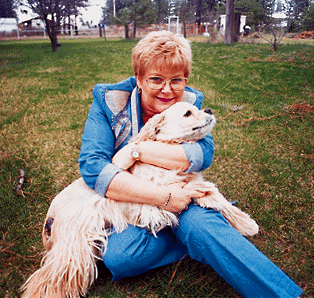

"They found it had almost eaten entirely through my upper left femur," she says. A year of chemotherapy followed, but Castle eventually had to have her hip replaced.
"You never really feel safe after you've had a recurrence. If you've had one, you usually have another one down the line," she says.

But Castle didn't have to sit and wait; she's received a new cancer vaccine in a CRC phase I trial led by Medicine Professor Mary L. Disis, who is also an affiliate investigator at the Fred Hutchinson Cancer Research Center.
The vaccine, developed by Disis and her colleagues at the UW over the last seven years, is designed to stimulate a patient's immune response against certain peptides. These compounds accelerate the growth of cancer cells, leading to aggressive progression of the disease.
Sixty women will participate in the trial. So far, 12 have received the vaccine; Castle, a graduate student in clinical psychology, was the first. "Since I'm the first human to do this, we don't know if these numbers will stay up," she says.
Castle's "numbers" are the cancer-fighting lymphocytes her immune system is mounting in response to the vaccine. "I feel honored to be the first person in the trial," she says.
During the trial, doctors want to find the highest dose that can be given without adverse reactions. Castle, having received her last vaccination in January, is being monitored for side effects. So far, so good.
Castle recalls sitting in an exam room at the CRC after receiving the first of six injections. Doctors were monitoring her closely for side effects. She slipped on Mickey Mouse ears when the RN left the room. When the nurse returned, she declared, "I'm having side effects... I've been craving cheese."
"Humor is a part of healing," she says. But Castle goes through a lot of worry too. The abnormal peptides that quickened the growth of her cancer are expressed by her own genes. "I'm vaccinated against something my own body makes," she says.
Castle had to postpone work on a master's degree in clinical psychology throughout much of her battle with cancer. Recently, she completed the degree and defended her research for the first time. Her thesis concerns biologic, psychological and social variables that contribute to breast cancer. After all, she's an expert.
Knowing that her participation in the trial, no matter what happens, will have some future benefit for people with the same disease is important for Castle. "It helps give a meaning to the illness," she says.
Christy Nelson:
Empowerment Against Unbeatable Odds
Russ Ewan: Can Hepatitis C Be
Beaten?
Kristin Thueringer:
Courage in a Child's Eyes
The
CRC Experience: Professional and Caring
Return to the Beginning
of "For the Sake of a Cure
Send a letter to the editor at columns@u.washington.edu.